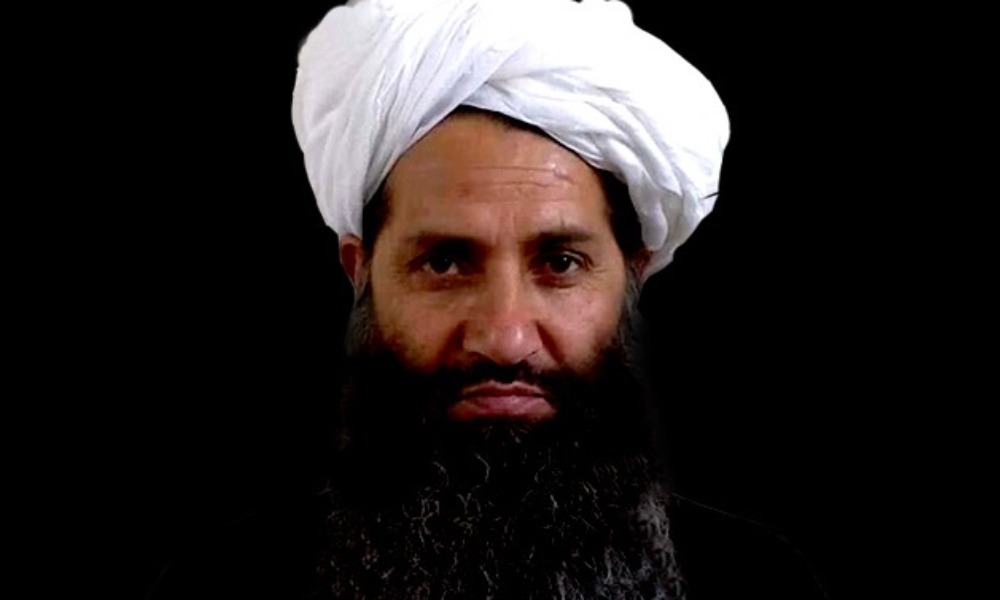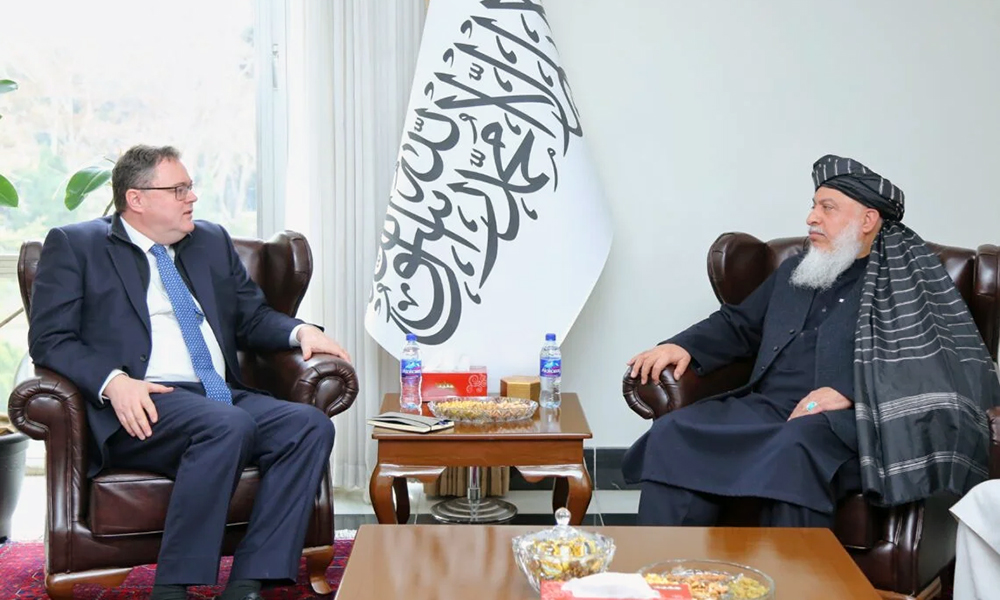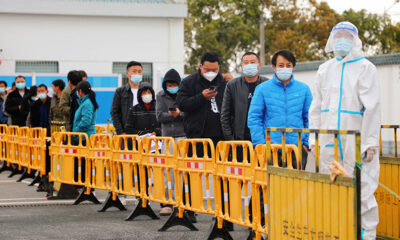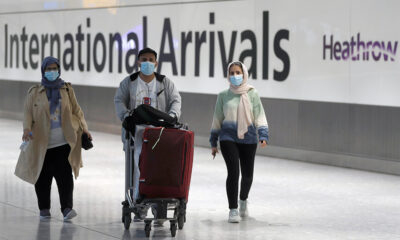Latest News
Coronavirus: UNHCR warns against neglecting Afghan refugees

 The United Nations High Commissioner for Refugees (UNHCR) urges greater support to Afghanistan, Pakistan, and Iran in the context of the COVID-19 pandemic.
The United Nations High Commissioner for Refugees (UNHCR) urges greater support to Afghanistan, Pakistan, and Iran in the context of the COVID-19 pandemic.
The UN refugee agency has warned that leaving Afghan refugees and their host communities behind would have a far-reaching and negative impact on global efforts to fight the Coronavirus.
The COVID-19 poses a very great threat to developing countries, the UNHCR said, adding that an outbreak would put extraordinary strain on already fragile local health-care services and likely result in avoidable suffering and death.
As the race against time continues globally, UNHCR appeals to the international community to boost solidarity with all three countries, and have at this critical time to prevent a larger-scale outbreak of the coronavirus among the most vulnerable communities.
"Despite persistent risks and insecurity, Afghans continue to return from both Iran and Pakistan. Tens of thousands of Afghan citizens have crossed over from Pakistan to Afghanistan since the temporary re-opening of the border last week. From Iran, while the number of Afghans nationals returning peaked at some 60,000 in March, around 1,500 individuals are currently returning every day," the UNHCR said in a statement.
 According to the statement, Afghanistan faces the prospect of overwhelmed medical and social services, with a dramatic increase in Afghans returning home, hundreds of thousands of people living in displacement sites and rising poverty levels.
According to the statement, Afghanistan faces the prospect of overwhelmed medical and social services, with a dramatic increase in Afghans returning home, hundreds of thousands of people living in displacement sites and rising poverty levels.
Pakistan and Iran, which host some 90 percent of the world’s 2.7 million Afghan refugees are experiencing immense strain on their health systems and economies. Lockdown measures and a sharp downturn in economic activity have left many Afghan refugees confronted with an inability to meet even their most basic needs.
"For Afghan refugees in Iran and Pakistan, the impacts of COVID-19 go far beyond health. In both countries, those who are employed are commonly hired as daily laborers," the statement said.
The refugee agency added that Amidst various levels of lockdown across the region, such work has abruptly ceased and refugees with no income and their hosts are now faced with economic threats to their survival.
Afghans in Iran and Pakistan widely report serious difficulties in paying medical expenses and meeting the most basic living costs of food and accommodation, leading to many being forced to borrow money, the agency noted.
Iran - facing the epicenter of the outbreak in South-West Asia - as facilitated exemplary inclusion of Afghans on its territory.
"UNHCR welcomes Iran’s recent confirmation that COVID-19 related tests and treatment are free of charge for all individuals, including for refugees. Additionally, the country’s Universal Public Health Insurance has been automatically extended for refugees as well as Iranian nationals – ensuring uninterrupted access to healthcare for all refugees," read the statement.
 In Pakistan, relevant departments have also been directed to include both refugees and internally displaced people in relief and response measures.
In Pakistan, relevant departments have also been directed to include both refugees and internally displaced people in relief and response measures.
In all three countries, UNHCR is adapting our operations constantly to these unique circumstances.
UNHCR has temporarily suspended supporting voluntary returns of refugees from Iran and Pakistan in an attempt to limit the risk of refugees and staff contracting the virus, the statement underlined.
In Afghanistan, UNHCR is supporting the Government’s prevention efforts through awareness-raising in the most vulnerable communities and priority areas of return. Speakers mounted atop cars and trucks drive through towns and villages to spread accurate and reliable information that will save lives.
UNHCR is also helping the government better manage the flow of people into Afghanistan through hiring additional staff to boost the teams at the border and improving reception facilities allowing for more space. UNHCR has provided masks, disinfectants and other protective gear to government officials working at the border and in the communities so that they can protect themselves against the spread of COVID-19.
"We are in the process of procuring more hygiene kits to be distributed among returnees and displaced communities as well as for the frontline staff of government institutions and our partners; scaling up the construction of water and sanitation facilities and further enhancing support for border surveillance and returnee monitoring in Afghanistan," UNHCR highlighted.
In Iran, UNHCR has airlifted essential medicines, medical equipment, and personal protective equipment to support and strengthen national health services. To address the critical and urgent lack of hygiene materials in Iran, UNHCR has also distributed soap and disposable paper towels to some 7,500 refugee households living in refugee settlements across the country, whose living situations in close-quarters make then more vulnerable to COVID-19. More airlifts are expected in the coming weeks.
UNHCR has increased its capacity at Afghanistan’s borders to Iran to better be able to support the tracking and contact tracing of individuals. Psychosocial support services continue to operate via phone.
In Pakistan, renewed emphasis has been placed on water and sanitation projects. UNHCR has provided 10 fully equipped ambulances and 28 large housing unit facilities to the provincial health departments and disaster management authorities in Balochistan, Khyber Pakhtunkhwa, and Punjab. Medical equipment and sanitation products are also being distributed to rural health facilities in support of refugees and their host communities.
More support is desperately needed for Afghanistan, Iran, and Pakistan as part of collective efforts to combat COVID-19 worldwide. Despite the work being done across the subregion, the risk of the pandemic become unmanageable is now acute.
UNHCR’s funding appeal of some US$315 million required for the Afghan situation is merely 17 percent funded.
Latest News
Human traffickers should be sentenced to 1 to 3 years in prison: IEA leader

The Leader of the Islamic Emirate has issued a decree instructing the Ministry of Interior Affairs to prevent human trafficking and to arrest and refer culprits to military courts.
The decree containing six articles says that that military courts should sentence human traffickers to one year in prison for the first time, two years if repeated for the second time and three years if repeated for the third time.
The ministries of Hajj, information, telecommunications, borders, propagation of virtue, as well as religious scholars are asked to inform the public about the dangers and adverse consequences of travelling through smuggling routes.
The decree comes as the rate of migration has increased following the political change in Afghanistan in 2021.
Latest News
Eight Afghan migrants die as boat capsizes off Greek island

Eight Afghan migrants died after a speedboat carrying migrants capsized off Greece's eastern island of Rhodes on Friday, the Associated Press reported.
Greek authorities said that the capsizing was the result of the boat’s maneuvering to evade a patrol vessel.
A total of 18 migrants — 12 men, three women and three minors — all Afghan nationals, were rescued, Greece's coast guard said Saturday. The dead were also from Afghanistan, it said.
Some migrants remained hospitalized, with one in critical condition, authorities said.
Two Turkish citizens, ages 23 and 19, were arrested as the suspected traffickers. The boat sank after capsizing, the coast guard said.
The sinking off Rhodes was the second deadly incident involving migrants in the past week.
Seven migrants were killed and dozens were believed missing after a boat partially sank south of the island of Crete over the weekend — one of four rescue operations during which more than 200 migrants were rescued.
Latest News
Norwegian Chargé d’Affaires meets with IEA deputy foreign minister
Welcoming the diplomat’s visit to Kabul, Stanikzai underscored the importance of political relations between Afghanistan and Norway, the foreign ministry said in a statement.

The Norwegian Chargé d’Affaires for Afghanistan, Per Albert Ilsaas, on Saturday met with IEA’s Deputy Foreign Minister for Political Affairs, Sher Muhammad Abbas Stanikzai, in Kabul.
Welcoming the diplomat’s visit to Kabul, Stanikzai underscored the importance of political relations between Afghanistan and Norway, the foreign ministry said in a statement.
In addition to focusing on bilateral political, humanitarian, and other pertinent issues, the two sides expressed hope that continued engagement would lead to constructive solutions to related issues.
This comes two weeks after the Foreign Ministry Spokesman Abdul Qahar Balkhi expressed disappointment regarding the decision by the Norwegian government to downgrade diplomatic relations with Afghanistan.
Balkhi said in a post on X that such decisions should not be linked with internal affairs of other countries.
“Diplomatic engagement is most effective when it fosters mutual understanding and respect, even amidst differing viewpoints,” he stated.
“Access to consular services is a fundamental right of all nationals. We strongly urge all parties to prioritize this principle in the spirit of international cooperation,” he added.
-

 Sport5 days ago
Sport5 days agoZimbabwe’s opening ODI against Afghanistan abandoned
-

 World4 days ago
World4 days agoNorth Korean troops suffer 100 deaths, struggling in drone warfare, South Korea says
-

 Latest News2 days ago
Latest News2 days agoAfghan men must stand with women to support viable future of country: US envoy
-

 Latest News4 days ago
Latest News4 days agoTwo horror accidents on Kabul-Kandahar highway leave 52 dead
-

 Sport3 days ago
Sport3 days agoAfghanistan crush Zimbabwe by 232 runs in second ODI
-

 Regional5 days ago
Regional5 days agoIran’s president to make rare visit to Egypt for D-8 summit
-

 International Sports5 days ago
International Sports5 days agoLanka T10: Kandy Bolts in at 4th spot in playoffs after thrilling day
-

 World5 days ago
World5 days agoNATO takes over coordination of military aid to Kyiv from US, source says



























